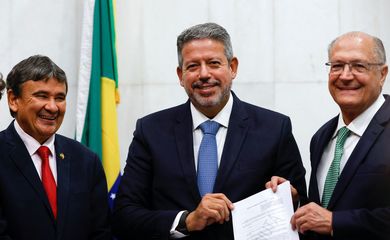Brazil passes bill ensuring funds for welfare in 2023

A constitutional amendment, informally referred to as Transition Bill, was passed by Brazil’s National Congress after a plenary session in the Senate on Wednesday (Dec. 21). The legislation guarantees funding for welfare programs such as income transfer aid Bolsa Família, as promised in the campaign of the future government.

Congress head Senator Rodrigo Pacheco pointed out that the proposal took 23 days to go from submission to promulgation, and makes sure that families receiving the Auxílio Brasil—which will once again be named Bolsa Família—will not cease to receive a BRL 600 allowance as early as January 2023. The bill, he argued, guarantees “minimally acceptable levels of human dignity to all Brazilians.”
Changes
After the approval, the incoming government will have BRL 145 billion to use outside of the spending cap, of which BRL 70 billion should be put toward the Bolsa Família program—a monthly BRL 600, with an additional BRL 150 per child up to six years old.
The other BRL 75 billion may be allocated to expenses such as health policies (BRL 16.6 billion), among them the affordable medication program and a real increase in the minimum wage (BRL 6.8 billion). The bill also makes fiscal room for another BRL 23 billion in investments for one year.
These expenditures, which fall outside of the public spending cap, are valid for one year. The original proposal approved by the Senate was to be in effect for two years, but the lower house reduced its duration to one.
The text also mandates that the president has until August 31, 2023, to submit a complementary bill to Congress instituting a new “sustainable fiscal regime to safeguard the country’s macro-economic stability and create the conditions for socio-economic growth.”
*Wellton Máximo and Heloísa Cristaldo contributed to this article.



